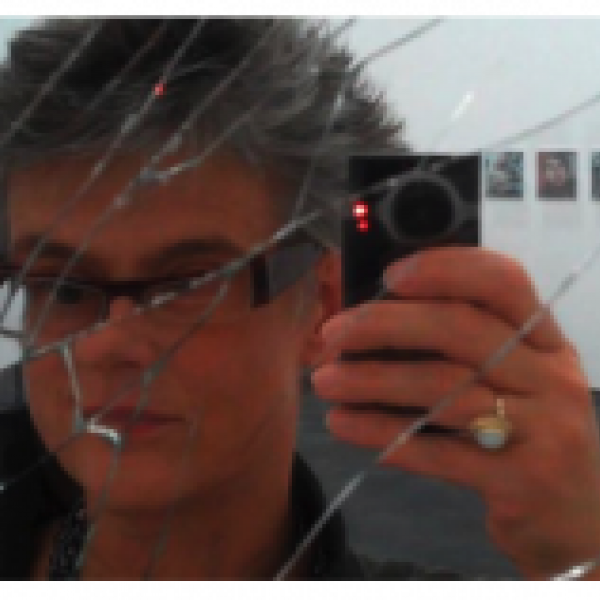Born in Germany of Franco-German parents, Dominique Bluher studied in Berlin and Paris where she received her Ph.D. in film studies from the Université de Paris 3. Prior to her appointment at the University of Chicago, she was a Lecturer in the department of Visual and Environmental Studies at Harvard and, before coming to the USA, Maître de conferences and the head of the film and theater studies department at the Université Rennes 2, where she also directed a research program devoted to French non-fiction short films in the 1950s and 1960s. The production of short films in this period was particularly fertile (4500 short films produced between 1945 and 1960), with a prevalence of non-fiction film over fiction. At this time the terms “short film” and “documentary” were virtually synonymous. This work was so inventive and ambitious—hallmark filmmakers such as Georges Franju, Alain Resnais, Chris Marker and Agnès Varda all produced important short films at this time—that the period is often referred to as the “golden age of the French school of short films.”
While living in France, Bluher was also the co-editor and manager of the bilingual journal of theory on image and sound, Iris, and worked in cinema-related areas in order to bridge her commitment to the criticism and promotion of alternative cinema; or in other words to seek to overcome the split between creative practice and theory. Bluher served for fifteen years as the French correspondent preselecting the French entries for the International Forum of New Cinema at the Berlin Film Festival, and worked for three years as the director of programming for ACID (Agence du Cinéma Indépendant pour sa Diffusion), a film-makers’ association dedicated to promoting the distribution of independent film. During the course of her studies, she also worked as a translator, subtitling more than 30 French art films and documentaries, and translated with Margrit Tröhler, Christian Metz’s “The Imaginary Signifier” into German. More recently, Bluher started to be more interested in the uses of moving images in contemporary art, and curated two shows for the Sert Gallery of the Carpenter Center of the Visual Arts (Harvard, Cambridge): “Les Veuves de Noirmoutier” Agnès Varda's first video installation exhibition in the United States (2009), and “Mark Lewis: Three Cinematic Works” (2011).
Bluher's current research and publications are focused primarily on autobiographical and alternative film practices. Her forthcoming book, Joseph Morder – le filmateur, is devoted to one of the most prolific, filmmakers working in France today, but who still waits to be fully discovered outside of France. Morder has been making films for over 40 years, and has directed at present some 900 films in Super 8, 16mm, 35 mm, video, and even with a cellphone camera. His oeuvre represents a unique body of films, since it comprises a particularly rich variety of autobiographical films. No other filmmaker has utilized so many forms of personal filmmaking: genuine and fake diaries; portraits of family members and friends; an autobiographical film recounting the painful story of his Jewish family and his childhood in Ecuador; autofictions combining non-fiction with reenactments; fictions adopting the form of a filmed journal or a filmed letter; and autobiographical found-footage films about his early years in South America and his arrival in France. Morder is also one of the very few filmmakers, who, even after becoming a professional filmmaker making “real movies” on standard formats, never gave up using amateur formats, but has continuously explored the possibilities of Super 8 or other non-standard gauges in short and feature length fiction and nonfiction work, then released on 16mm or 35mm.
Her second book, Framing the I: Film and Autobiography, undertakes a historical and critical examination of personal, autobiographical filmmaking. In contrast to literature and art history, where the self-portrait and autobiography are well-established genres, and where a wide range of seminal studies have been published, research on autobiographical cinema is not yet well developed. Although extensive publications can be found on individual films and filmmakers, there are very few books on this subject. Framing the I focuses on the four main forms of personal filmmaking: diary, autobiography, self-portrait, and autofiction. Her research includes a growing list of over two hundred filmmakers who have made at least one autobiographical film, ranging from sometimes less known but important experimental or documentary filmmakers, like Jonas Mekas, Joseph Morder, Ed Pincus, Ross McElwee, David Perlov, Su Friedrich, Anne Robertson, Corinne Cantrill, or Gina Kim, to well established auteurist directors such as Agnès Varda, Chantal Akerman, Federico Fellini, Jean-Luc Godard, or Nanni Moretti.
More recently, Dominique Bluher started to be more interested in the uses of moving images in contemporary art, and curated two shows for the Sert Gallery of the Carpenter Center of the Visual Arts (Harvard, Cambridge): “Les Veuves de Noirmoutier” Agnès Varda's first video installation exhibition in the United States (2009), and “Mark Lewis: Three Cinematic Works” (2011). In Chicago, I co-organized a one-week residency of Agnès Varda, which included an artist’s talk by Varda, screenings of selected films, many attended by Varda herself, and a conversation between Varda and artist Jessica Stockholder. In conjunction with Varda’s visit, she also curated "Agnès Varda: Photographs Get Moving (potatoes and shells, too)," an exhibition of four recent video-installations alongside a selection of her photographic work. The Chicago Tribune listed the exhibition as one of the best shows in Chicago in 2015. And in May 2016 organized a visit by Philippe Grandrieux, who presented his last three films and directed a solo performance by Callahan McGovern of White Epilepsy.

